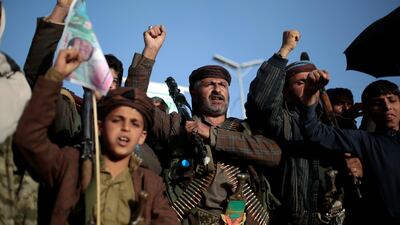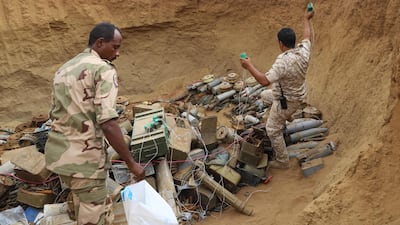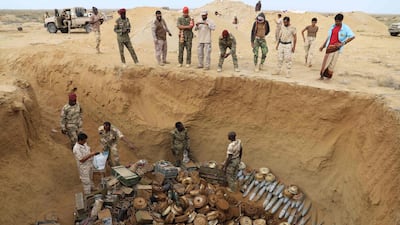The British government faced a storm of criticism in the House of Commons over its aid cut to Yemen.
During a heated debate in Parliament on Tuesday, the Foreign Office was forced to admit that the 60 per cent reduction to £87 million ($121.4m) was “a floor, not a ceiling”.
The concession by the UK’s Minister for the Middle East and North Africa, James Cleverly, came as cross-party politicians condemned the decision that would result in children dying from starvation.
The government announced on Monday that it would reduce its Yemen aid package from £214m.
This led to an urgent question asked by Conservative MP Andrew Mitchell, the former international development secretary.
Mr Mitchell called the reduction an “unconscionable decision” and a “death sentence” for young Yemenis.
“Millions of Yemeni children will now continue the slow, agonising and obscene process of starving to death,” he told the House of Commons.
“The fifth richest country in the world is cutting support by more than half to one of the poorest countries in the world.”
Mr Mitchell said the decision was “not how global Britain acts. We are a generous decent country”.
“We must all search our conscience,” he said.
Mr Mitchell's words that it was “a harbinger of terrible cuts to come” were echoed across the House.
In response to the criticism, Mr Cleverly said the British commitment “represents a floor, not a ceiling”.
“The figures that we've ultimately distributed in previous years exceeded the pledge,” he said.
The government was still looking at how it would distribute the cash, but Britain remained “one of the most generous donating countries in the world", Mr Cleverly said.
The UN told Monday’s aid conference that it was seeking $3.85 billion to prevent famine in Yemen.
Aid groups warned that cutting fund would spark a catastrophe, with six million Yemenis, half of them children, without access to clean water or sanitation.
Saudi Arabia said it would give $430m, the UAE $230m and the US $191m.
Despite the economic downturn, Germany almost doubled its contribution to $241m, compared to $138m last year.
Preet Gill, the shadow international development minister, said Whitehall’s decision “discarded the British people's proud history of stepping up and supporting those in need”.
Layla Moran, the Liberal Democrats’ foreign affairs spokeswoman, condemned the “enormous cut in a year when 400,000 children under 5 might starve to death”.
“This is not just heartless, it also damages the UK international reputation,” Ms Moran said.
She accused the government of “shrinking from its commitments, leaving other more compassionate countries to pick up the slack”.
Many others spoke out against the decision, including former cabinet ministers from the Labour and Conservative parties.
Mr Cleverly repeated that the government had already given more than £1bn to Yemen since the conflict began, but Labour MP Hilary Benn condemned the argument.
“Doing the right thing in the past is not a justification for doing the wrong thing now," Mr Benn said.
"Why is the government doing this when, for example, Germany, which is also facing the same unprecedented economic situation, has managed to pledge twice as much as the UK?”
Mr Cleverly said that Britain gave not only money, but also its international influence.
“There are other resources that we bring … including our voice on the international stage, our lobbying power, our political power and we will continue to work to bring about an end to the conflict,” he said.
The government announced last year that it would reduce the legally binding 0.7 per cent of GDP for overseas aid to 0.5 per cent because of the economic crisis.




















